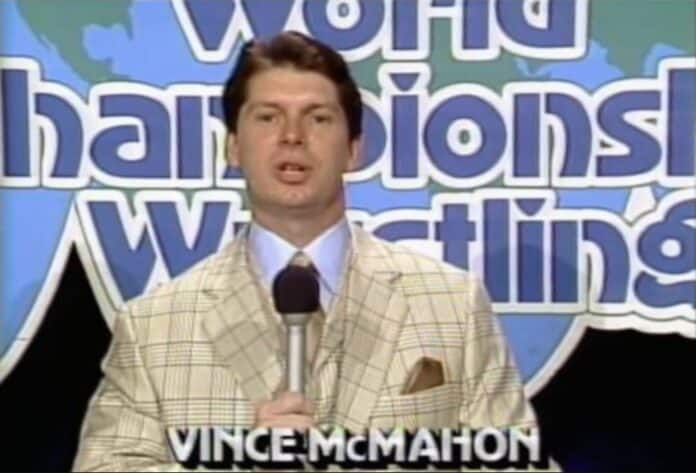A Clash of Titans
July 14, 1984, a date forever etched in the annals of professional wrestling history as “Black Saturday,” marked a pivotal moment that would reshape the industry. This infamous day witnessed a bold, yet ultimately ill-fated, attempt by Vince McMahon’s World Wrestling Federation (WWF) to seize control of the Southern wrestling territory.
For years, Georgia Championship Wrestling (GCW) had been a staple on Superstation WTBS, captivating audiences with its larger-than-life characters and intense storytelling. Led by legendary figures like Ric Flair, Dusty Rhodes, and the Road Warriors, GCW had cultivated a loyal fanbase in the Southern United States.
Unbeknownst to many, a seismic shift was brewing. McMahon, with his sights set on national expansion, secretly negotiated with the Brisco brothers, majority shareholders in GCW, to acquire the coveted time slot on WTBS. The plan was audacious: to replace the beloved GCW programming with WWF content, a move that would introduce a new style of wrestling to the Southern audience.
A Fan Backlash
When the fateful Saturday arrived, Southern wrestling fans were met with a rude awakening. Instead of their familiar heroes, they were confronted with the unfamiliar faces of Hulk Hogan, the Iron Sheik, and other WWF superstars. The backlash was immediate and overwhelming. Fans flooded the phone lines of WTBS with complaints, expressing their outrage and demanding the return of GCW.
The reaction was so intense that it caught the attention of media mogul Ted Turner, the owner of WTBS. Turner, recognizing the power of wrestling and the loyalty of its fans, quickly moved to rectify the situation. He purchased Jim Crockett Promotions (JCP), GCW’s successor, and formed World Championship Wrestling (WCW). This move would have far-reaching consequences, setting the stage for the intense rivalry between WCW and WWF that would define the 1990s.
The Impact on the Wrestling Industry
The events of Black Saturday had a profound impact on the wrestling industry. The intense competition between WWF and WCW during the Monday Night Wars, fueled by the events of Black Saturday, elevated professional wrestling to new heights of popularity. While the Southern territory was temporarily disrupted, its influence on wrestling, particularly its storytelling and character development, continued to shape the industry.
Despite the failed takeover, McMahon’s strategic maneuvering yielded unexpected benefits. The funds acquired from Turner were instrumental in financing the first WrestleMania, a groundbreaking event that solidified the WWF’s dominance in the industry.
Black Saturday remains a cautionary tale, demonstrating the power of regional wrestling traditions and the fierce loyalty of fans. It serves as a reminder of the risks and rewards involved in the pursuit of wrestling supremacy.
A Legacy of Rivalry
The rivalry between WWF and WCW, ignited by Black Saturday, captivated audiences worldwide. The two companies engaged in a fierce battle for ratings, talent, and fan loyalty. This era produced some of the most iconic moments in wrestling history, including the legendary Monday Night Wars.
While the WWF ultimately emerged victorious, the impact of WCW cannot be understated. The company introduced innovative storylines, charismatic characters, and a more intense style of wrestling, challenging the traditional approach of the WWF.
The Enduring Legacy of Black Saturday
Black Saturday was a pivotal moment that shaped the wrestling industry. It marked the end of an era and the beginning of a new one. The legacy of this event continues to shape the industry, inspiring future generations of wrestlers and fans.
The cultural impact of Black Saturday cannot be overstated. It highlighted the power of fan loyalty and the importance of regional wrestling traditions. The event also demonstrated the strategic brilliance of Vince McMahon, who would go on to revolutionize the wrestling industry.
As we reflect on Black Saturday, we can appreciate its significance in shaping the world of professional wrestling. It was a turning point that paved the way for the growth and evolution of the industry, leaving an enduring legacy that continues to inspire fans around the globe.
Expert Insights
- Dave Meltzer, renowned wrestling journalist, has extensively covered Black Saturday in the Wrestling Observer Newsletter. He has analyzed the strategic implications of the event and its impact on the wrestling industry. Meltzer described the fan reaction as “a firestorm of anger” and noted that the incident “changed the course of wrestling history.”
- Jim Cornette, a prominent figure in professional wrestling, has shared his firsthand experiences and insights into Black Saturday. He has discussed the cultural significance of Southern wrestling, the strategic brilliance of Vince McMahon, and the impact of the event on the careers of wrestlers like Ric Flair and Dusty Rhodes.
Cornette noted, “McMahon was a master manipulator. He played the different factions against each other, and ultimately, he came out on top.” The event, while a setback for McMahon, ultimately fueled his ambition and led to the creation of WrestleMania, a landmark event that changed the course of wrestling history.


